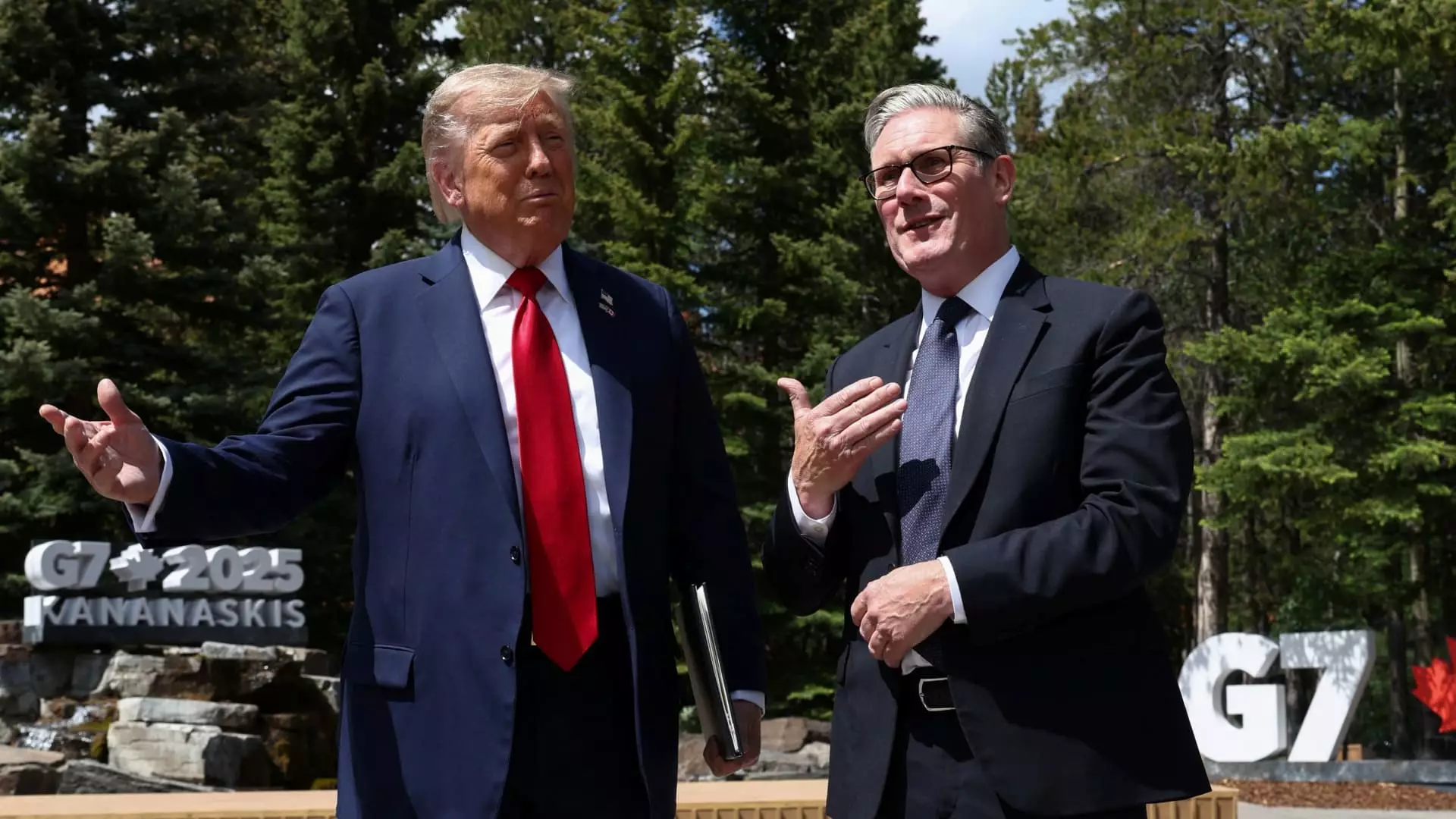The recent trade agreement signed by U.S. President Donald Trump and British Prime Minister Keir Starmer represents a pivotal moment in UK-U.S. economic relations. While Trump touted the agreement as a signal of a “fantastic” relationship, it raises several flags about the nature of such agreements in a global context. Low tariffs on key sectors like automobiles and aerospace sound promising on the surface, yet they reveal a paradox lurking beneath the surface. This is not merely a trade deal; it’s a strategic maneuver that underscores the volatility of international trade relations under populist leadership.
At its core, the agreement aims to remove tariffs on British aerospace while maintaining quotas on steel and aluminum. However, such concessions seem to come with their own strings attached. The reality is that the promise of free trade often leads to a complex web of negotiations that can disadvantage smaller economies, especially when they rely heavily on larger partners. The UK’s economic future hangs precariously in the balance, teetering between trade advantages and the looming specter of punitive tariffs.
The Quagmire of Quotas and Tariffs
Quotas can be a poison apple when it comes to trade. While the agreed-upon annual quota of 100,000 vehicles exported to the U.S. might appear generous, the implications of such limitations are anything but straightforward. The UK’s automotive industry is at the mercy of arbitrary numbers that can be modified or revoked by the whims of U.S. officials. What happens if those quotas do not meet expected growth demands? The repercussions could be dire for British manufacturers.
Moreover, Trump’s insistence on conditioning steel and aluminum import quotas on Britain’s ability to demonstrate the security of its supply chains highlights an ongoing tactical trend in trade negotiations, wherein security concerns take precedence over economic ones. By inserting a layer of scrutiny, the U.S. essentially retains veto power over UK exports—a subtle but significant shift in the balance of power in these discussions. The question must be asked: Do we risk becoming pawns in a larger geopolitical game, all under the ruse of favorable trade?
The Missing Pieces
It is particularly concerning that more critical industries, such as pharmaceuticals, were not addressed in this agreement. Failing to include comprehensive measures for such a vital sector signals a worrying oversight. With the global economy increasingly interconnected, overlooking major sectors can lead to long-term detrimental outcomes for the UK. The realities of modern trade require a holistic approach, and selective concessions only serve to deepen the UK’s vulnerabilities.
Furthermore, the insistence by U.S. representatives on stringent standards for American beef imports raises questions on whether future agreements will come at the cost of UK health and safety regulations. The balancing act between trade liberalization and maintaining national standards is a delicate one, and there is a shallow reservoir of trust when it comes to imposing foreign standards on UK products, especially in the food sector.
A Chilling Effect on Economic Sovereignty
As the UK anxiously seeks to navigate its post-Brexit identity, the eagerness to secure trade agreements often leads to the relinquishment of economic sovereignty. The recent agreement serves as proof that the allure of free trade can sometimes override the fundamental need to protect domestic industries and maintain regulatory standards. The supposed ‘wins’ pointed to by trade representatives may not reflect the whole picture, but rather a superficial gloss that masks impending challenges.
Additionally, both leaders’ proclamations of “strength” and mutual benefits can sound almost theatrical in light of the persistent challenges that lie ahead. While such self-praise may embolden some factions within both countries, the reality is far less rosy. The complexities of international trade are rife with unforeseen consequences, and placing blind faith in political proclamations may leave many in both nations disillusioned about the true benefits of such agreements.
By trading away certain rights—whether intentionally or through oversight—the UK risks becoming ensnared in a cycle of dependency on U.S. policies influenced by the whims of partisan leadership. Therefore, it is critical for stakeholders to commit to a path that prioritizes long-term sustainability over short-term gains.
It is imperative for the UK to not only engage in trade negotiations but to actively shape them, ensuring that they reflect the true needs of its economy and its people, rather than becoming tethered to the changing tides of foreign policy. The future of the UK’s economic stability requires a discerning approach to navigating this intricate dance of international relations.


Leave a Reply